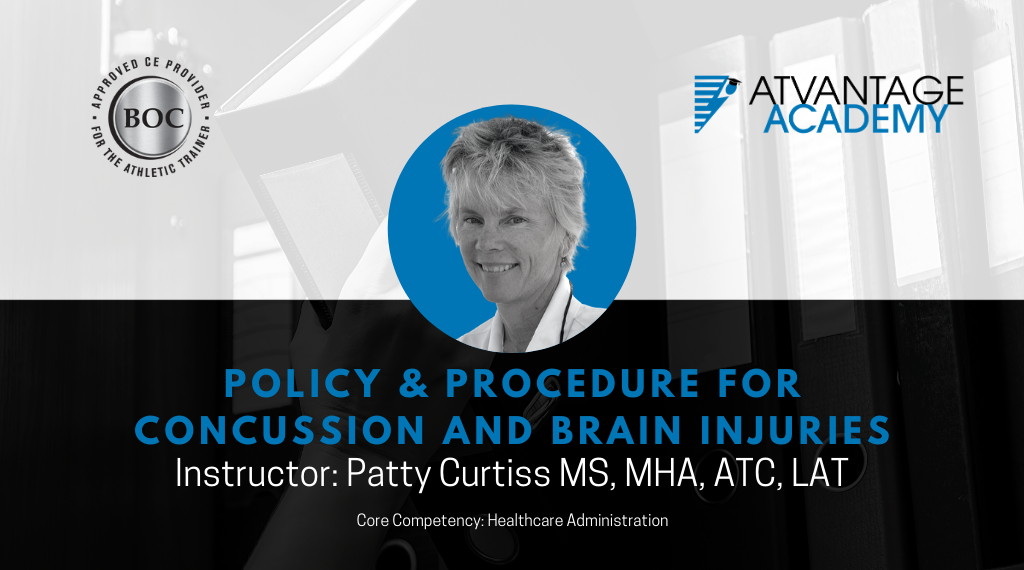Core Competency:
- Healthcare Administration – Standard 93: Develop and implement specific policies and procedures for individuals who have sustained concussions or other brain injuries
AT Milestones:
- Patient-Care and Procedural Skills (PC-3) – Diagnosis and management: Gathers and synthesizes essential and accurate information to define each patient’s clinical problem(s).
- Patient-Care and Procedural Skills (PC-4) – Diagnosis and management: Physical examination.
- Patient-Care and Procedural Skills (PC-5) – Diagnosis and management: diagnostic evaluation.
- Patient-Care and Procedural Skills (PC-6) – Diagnosis and management: develops and implements comprehensive management plan for each patient.
- Systems-Based Practice (SBP-4) – Interprofessional teams: works effectively with an interprofessional team
- Orthopedics (Ortho-1) – Diagnostic Evaluation: Gathers and synthesizes essential and accurate information to define each patient’s clinical problem(s).
- Orthopedics (Ortho -2) – Management: Effectively manages patients with increasingly complex orthopedic conditions.
This course is eligible for Category D CEUs
Purpose: In accordance with Standard 93 of the 2020 CAATE standards, the athletic trainer should be prepared to develop and implement specific policies and procedures for individuals who have sustained concussions or other brain injuries. This requires the athletic trainer to acknowledge the relevance of this education to their professional practice, understand how to properly develop and implement specific policies and procedures, while simultaneously advocating for their usage and application in their clinical setting. Successful completion of this course will demonstrate proficient knowledge in the area of policy and procedure development and implementation specific to concussion and brain injury.
Key Learning Objectives:
- The student will be able to differentiate the stages of concussion management
- The student will be able to select the appropriate tool(s) for measurement of brain impairment
- The student will be able to describe best practice guidelines for concussion management
- The student will be able to recognize common symptoms associated with the affected system
- The student will be able to demonstrate a thorough clinical evaluation for a concussed patient
- The student will be able to develop a plan of care for a concussed patient
- The student will be able to identify when and where to refer a patient with prolonged recovery


